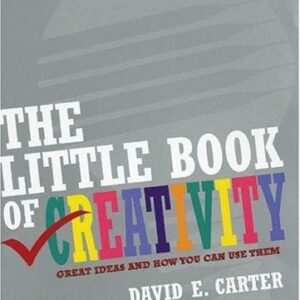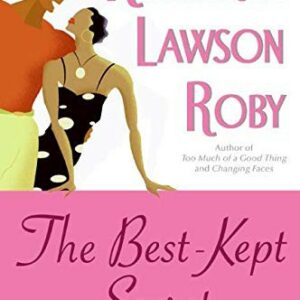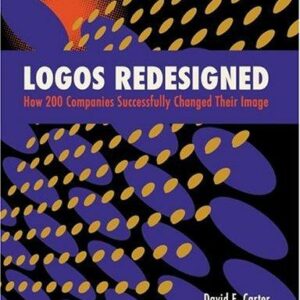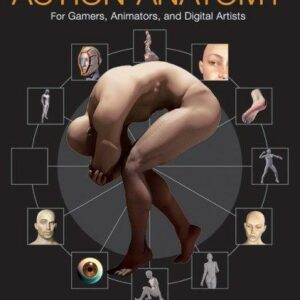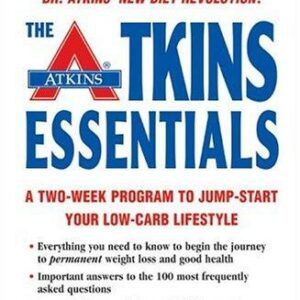Clear Thinking
$29.00
| Title | Range | Discount |
|---|---|---|
| Trade Discount | 5 + | 25% |
- Description
- Additional information
Description
AN INSTANT NEW YORK TIMES BESTSELLER
Few things will change your trajectory in life or business as much as learning to think clearly. Yet few of us recognize opportunities to think in the first place.
You might believe you’re thinking clearly in the moments that matter most. But in all likelihood, when the pressure is on, you won’t be thinking at all. And your subsequent actions will inevitably move you further from the results you ultimately seek—love, belonging, success, wealth, victory. According to Farnam Street founder Shane Parrish, we must get better at recognizing these opportunities for what they are, and deploying our cognitive ability in order to achieve the life we want.
Clear Thinking gives you the tools to recognize the moments that have the potential to transform your trajectory, and reshape how you navigate the critical space between stimulus and response. As Parrish shows, we may imagine we are the protagonists in the story of our lives. But the sad truth is, most of us run on autopilot. Our behavioral defaults, groomed by biology, evolution, and culture, are primed to run the show for us if we don’t intervene. At our worst, we react to events without reasoning, not even realizing that we’ve missed an opportunity to think at all. At our best, we recognize these moments for what they are, and apply the full capacity of our reasoning and rationality to them.
Through stories, mental models, and more, Parrish offers the missing link between behavioral science and real-life outcomes. The result is a must-have manual for optimizing decision-making, gaining competitive advantage, and living a more intentional life.“Practical advice for thinking clearly”
—Financial Times
“An indispensable guide to making smarter decisions each day.”
—James Clear, #1 New York Times bestselling author of Atomic Habits
“Shane Parrish has a marvelous gift for asking the right questions to elicit how clear thinkers think. After mining the minds of an impressive array of decision makers, he’s now put it all together in Clear Thinking, giving us a powerful framework of concepts and tools. Incisive. Practical. Full of vivid examples, and enormously fun to read.”
—Jim Collins, bestselling author of Good to Great
“This book is a valuable antidote to stupidity, and a game-changer for anyone seeking to succeed.”
—Morgan Housel, bestselling author of The Psychology of Money
“Shane Parrish, the brilliant thinker who created Farnam Street and the podcast The Knowledge Project, has distilled the wisdom he’s gathered over the years into a must-read book full of fascinating stories and insights. Clear Thinking gives you the practical tools you need to counteract the forces that can lead you down the wrong path.”
—Bethany McLean, bestselling coauthor of The Smartest Guys in the Room
“An actionable guide to using your mind more effectively, and a lucid manual for overcoming cognitive biases and making better decisions.”
—Adam Grant, New York Times bestselling author of Think Again and Hidden Potential, and host of the TED podcast Re:Thinking
“If you want results—good ones—that you can achieve confidently again and again, read this book. Shane Parrish demystifies the process of thinking clearly so you can create better odds in your personal and professional life.”
—Annie Duke, bestselling author of Quit
“Shane Parrish is someone I have been reading for many, many years. This book is his masterwork, the culmination of all his research, interviewing, and experiences that everyone will benefit from.”
—Ryan Holiday, bestselling author of Discipline Is Destiny
“Clear Thinking distills decades of best practices into practical tools. From identifying the opportunity in ordinary moments to learning what gets in our way to having the courage to take action, Shane shines a light on what each of us can do to have better outcomes and more impact. Clear Thinking is a must read in an increasingly cluttered world.”
—Kat Cole, President and COO of Athletic Greens
“The world of sports is filled with nuance and complexity, and operating with sound thinking is paramount to making important decisions that impact not just individuals but entire franchises. Shane’s expert guidance in Clear Thinking is already proving to be a go-to resource for how I approach decision-making as a professional basketball executive.”
—Landry Fields, General Manager, Atlanta Hawks
“My favorite part of the book was the section on habits, rules, and safeguards on page 101. A principle that Shane and I discussed in January changed my life and was expounded on in the book.”
—Brent Beshore, CEO of Permanent EquityShane Parrish is an entrepreneur and wisdom seeker behind the popular website Farnam Street, where he focuses on turning timeless insights into action. His insights are used by Fortune 500 companies and sports teams in the NFL, NBA, MLB, and NHL to drive better results. His work has appeared in nearly every major publication, including The New York Times, The Wall Street Journal, and Forbes. His weekly newsletter, Brain Food, has captivated the minds of over half a million subscribers worldwide. His podcast, The Knowledge Project, is one of the most popular in the world.Chapter 1.1
Thinking Badly-
or Not Thinking at All?
Rationality is wasted if you don’t know when to use it.
When you ask people about improving thinking, they typically point toward numerous tools designed to help people think more rationally. Bookstores are full of books that assume the problem is our ability to reason. They list the steps we should take and the tools we should use to exercise better judgment. If you know you should be thinking, these can be helpful.
What I’ve learned from watching real people in action is that, just like the angry CEO, they’re often unaware circumstances are thinking for them. It’s as if we expect the inner voice in our head to say, “STOP! THIS IS A MOMENT WHEN YOU NEED TO THINK!”
And because we don’t know we should be thinking, we cede control to our impulses.
In the space between stimulus and response, one of two things can happen. You can consciously pause and apply reason to the situation. Or you can cede control and execute a default behavior.
The problem is, our default behavior often makes things worse.
When someone slights us, we lash out with angry words.
When someone cuts us off, we assume malice on their part.
When things go slower than we want, we become frustrated and impatient.
When someone is passive-aggressive, we take the bait and escalate.
In these moments of reaction, we don’t realize that our brains have been hijacked by our biology, and that the outcome will go against what we seek. We don’t realize that hoarding information to gain an advantage is hurting the team. We don’t realize we’re conforming to the group’s ideas when we should be thinking for ourselves. We don’t realize our emotions are making us react in ways that create problems downstream.
So our first step in improving our outcomes is to train ourselves to identify the moments when judgment is called for in the first place, and pause to create space to think clearly. This training takes a lot of time and effort, because it involves counterbalancing our hardwired biological defaults evolved over many centuries. But mastery over the ordinary moments that make the future easier or harder is not only possible, it’s the critical ingredient to success and achieving your long-term goals.
The High Cost of Losing Control
Reacting without reasoning makes every situation worse.
Consider a common scenario that I’ve seen countless times. A coworker slights a project you’re leading in a meeting. Instinctively you hit back with a comment that undermines them or their work. You didn’t make a conscious choice to respond, you just did. Before you even know what’s happening, the damage is done. Not only does the relationship suffer but the meeting goes sideways.
Too much energy is then consumed getting you back to where you were. The relationship needs to be repaired. The derailed meeting needs to be rescheduled. You might need to talk to the other people in the meeting to clear the air. And even after all of this, you might still be worse off than you were before. Every witness and every person they talked to about what happened received an unconscious signal that eroded their trust in you. Rebuilding that trust takes months of consistent behavior.
All the time and energy you spend fixing your unforced errors comes at the expense of moving toward the outcomes you want. There is a huge advantage in having more of your energy instead go toward achieving your goals instead of fixing your problems. The person who learns how to think clearly ultimately applies more of their overall effort toward the outcomes they want than the person who doesn’t.
You have little hope of thinking clearly, though, if you can’t manage your defaults.
Biological Instincts
There’s nothing stronger than biological instincts. They control us often without us even knowing. Failing to come to terms with them only makes you more susceptible to their influence.
If you’re having trouble understanding why you sometimes react to situations in the worst possible way, the problem isn’t your mind. Your mind is doing exactly what biology programmed it to do: act quickly and efficiently in response to threats, without wasting valuable time thinking.
If someone breaks into your house, you instinctively stand between them and your kids. If someone approaches you with a menacing expression, you tense up. If you sense your job is at risk, you might unconsciously start hoarding information. Your animal brain believes you can’t be fired if you’re the only one who knows how to do your job. Biology, not your rational mind, told you what to do.
When our unthinking reactions make situations worse, that little voice in our head starts to beat us up: “What were you thinking, you idiot?” The truth of the matter is, you weren’t thinking. You were reacting, exactly like the animal you are. Your mind wasn’t in charge. Your biology was.
Our biological tendencies are hardwired within us. Those tendencies often served our prehistoric ancestors well, but they tend to get in our way today. These timeless behaviors have been described and discussed by philosophers and scientists from Aristotle and the Stoics to Daniel Kahneman and Jonathan Haidt.
For instance, like all animals, we are naturally prone to defend our territory. We might not be defending a piece of terrain on the African savanna, but territory isn’t just physical, it’s also psychological. Our identity is part of our territory too. When someone criticizes our work, status, or how we see ourselves, we instinctively shut down or defend ourselves. When someone challenges our beliefs, we stop listening and go on the attack. No thoughts, just pure animal instinct.
We’re naturally wired to organize the world into a hierarchy. We do this to help make sense of the world, maintain our beliefs, and generally feel better. But when someone infringes on our place in the world and our understanding of how it works, we react without thinking. When someone cuts you off on the highway and road rage kicks in, that’s your unconscious mind saying, “Who are you to cut me off?” You’re reacting to a threat to your inherent sense of hierarchy. On the road we are all equals. We’re all supposed to play by the same rules. Cutting someone off violates those rules and implies higher status. Or consider when you get frustrated with your kids and end an argument with “Because I said so.” (Or the office equivalent: “Because I’m the boss.”) In these moments you’ve stopped thinking and regressed to your biological tendencies of reaffirming the hierarchy.
We’re self-preserving. Most of us would never intentionally push someone else down to get where we want to go. The key word here is “intentionally,” because intention involves thought. When we’re triggered and not thinking, our desire to protect ourselves first takes over. When layoffs loom at a company, otherwise decent people will quickly throw each other under the bus to keep a job. Sure, they wouldn’t consciously want to hurt their colleagues, but if it comes down to “them versus me,” they will ensure they come out on top. That’s biology.
Our biological instincts provide an automatic response without conscious processing. After all, that’s what they’re for!
Conscious processing takes both time and energy. Evolution favored stimulus-response shortcuts because they’re advantageous for the group: they enhance group fitness, group survival, and reproduction. As humans continued flourishing in groups, hierarchies developed, creating order out of chaos and giving us all a place. Territory is how we tried to avoid fighting others-you stay out of my territory, I’ll stay out of yours. And self-preservation means we choose survival over rules, norms, or customs.
The problem occurs when you zoom in from the aggregate to the individual, from the eons of evolution to the present moment of decision. In today’s world, basic survival is no longer in question. The very tendencies that once served us now often act as an anchor holding us in place, weakening our position, and making things harder than they need to be.
Knowing Your Defaults
While there are many such instincts, four stand out to me as the most prominent, the most distinctive, and the most dangerous. These behaviors represent something akin to our brain’s default or factory settings. They’re behavioral programs written into our DNA by natural selection that our brains will automatically execute when triggered unless we stop and take the time to think. They have many names, but for the purposes of this book, let’s call them the emotion default, the ego default, the social default, and the inertia default.
Here’s how each essentially functions:
1. The emotion default: we tend to respond to feelings rather than reasons and facts.
2. The ego default: we tend to react to anything that threatens our sense of self-worth or our position in a group hierarchy.
3. The social default: we tend to conform to the norms of our larger social group.
4. The inertia default: we’re habit forming and comfort seeking. We tend to resist change, and to prefer ideas, processes, and environments that are familiar.
There are no hard edges between defaults; they often bleed into one another. Each on their own is enough to cause unforced errors, but when they act together, things quickly go from bad to worse.
People who master their defaults get the best real-world results. It’s not that they don’t have a temper or an ego, they just know how to control both rather than be controlled by them. With the ability to think clearly in ordinary moments today, they consistently put themselves in a good position for tomorrow.
In the following section I’ll give an overview of how these defaults manifest in human behavior, and how to recognize when they’re at play in your own life. Not only will your own past actions make more sense after taking defaults into account, but you’ll also learn to identify when others are reacting to them too.
Chapter 1.2
The Emotion Default
The Godfather is one of my favorite movies, in part because of the many business lessons it contains. Vito Corleone, head of the Corleone crime family, is a master of patience and discipline. With his defaults under control, he never reacts without reasoning, and when he does react, it’s ruthlessly effective.
Vito’s oldest son, Santino, a.k.a. Sonny, is Vito’s heir apparent. Unlike his father, however, Sonny is vengeful, impulsive, and hotheaded. He easily flies into fits of rage, reacting first and reasoning later. His unforced errors ensure he’s constantly playing life on hard mode.
The emotion default controls Sonny, and he doesn’t realize it. On one occasion, he beats his brother-in-law, Carlo Rizzi, in public, an act that will have unintended future consequences. On another occasion, a rival family approaches Vito about partnering to sell drugs. Vito declines. But Sonny, quick to react without thinking, jumps in and undermines his father’s position. After the meeting, Vito offers his son a lesson: “Never tell anyone outside the family what you’re thinking again.” But the lesson comes too late; the damage is already done. The dealer decides that if Vito can be taken out, Sonny will take the deal. Sonny’s indiscretion leads to an assassination attempt on Vito’s life, which critically wounds his father.
While Vito is in the hospital, Sonny becomes acting head of the family. True to his impulsive nature, he initiates an all-out war with the other families. Meanwhile, Carlo Rizzi continues to resent Sonny for beating him in front of his crew, and conspires with a rival family to kill him. Carlo baits Sonny into reacting without reasoning, which leads to Sonny’s brutal assassination on the Jones Beach Causeway.
Sonny’s quick temper ultimately leads to his downfall, as it does for many people. When we respond without reasoning, we’re more likely to make mistakes that seem obvious in hindsight. In fact, when we respond emotionally, we often don’t even realize that we’re in a position that calls for thinking at all. When you are possessed by the moment, all the reasoning tools in the world won’t help you.
From Emotion to Action
There’s a bit of Sonny in each of us. You experience anger, fear, or some other emotion, and feel compelled to act immediately. But in these moments, the action you’re pushed toward rarely serves you.
Anger at a rival prevents you from doing what’s in your own best interest. Fear of losing an opportunity pushes you to cut thinking short and act impulsively. Outrage at a criticism causes you to lash out in defense, alienating potential allies. The list goes on.
Emotions can multiply all of your progress by zero. It doesn’t matter how much you’ve thought about or worked at something, it can all be undone in an instant. No one is immune. The Olympian Matthew Emmons, for instance, was a prodigy who’d come to dominate the field of competitive rifle shooting. He was poised to win his second Olympic gold when the emotion default worked its mischief. Emmons was in the final round. He aimed. He fired. Bullseye. The only problem: he shot at the wrong target! Had it been the right one, he would’ve won the gold. Instead, he was awarded zero points and slipped to eighth place.
Afterward, Emmons said that he usually looked through the rifle scope at the number above the target to make sure it was the correct one before lowering the rifle to the bullseye. In this case, he’d skipped that crucial first step.
“On that shot,” he said, “I was just worrying about calming myself down . . . so I didn’t even look at the number.” So he scored a point for the emotion default, instead.
While Emmons’s Olympic loss is epic, it pales in comparison to the tragedy that unfolded in the life of a former colleague of mine. Let’s call him Steve. I noticed that Steve always seemed to shut down whenever politics came up during work dinners. One day, away from the group, I asked him why.
He told me a story I’d never forget.
One night, Steve’s parents came over for dinner. When they started talking about politics and taxes, the conversation grew heated. Steve’s emotions soon took over, and he started saying things he probably didn’t mean. Things that couldn’t be unsaid. Things we might say when we’re reacting and not thinking.
That was the last conversation he ever had with his parents. On their way home, their car was struck head on by a drunk driver. Neither recovered. That night still haunts Steve to this day. It’s a memory that won’t go away, about an ordinary moment he’ll forever regret.
Emotions can make even the best of us into idiots, driving us away from clear thinking. They often have help, though. Later we’ll see some of the many inbuilt biological vulnerabilities that leave us even more exposed to the emotion default’s influence: sleep deprivation, hunger, fatigue, emotion, distraction, stress from feeling rushed, and being in an unfamiliar environment. If you find yourself in any of these conditions, be on your guard! The emotion default is likely running the show. We’ll also explore the safeguards that can protect you in such situations.US
Additional information
| Weight | 20 oz |
|---|---|
| Dimensions | 0.7188 × 5.5000 × 8.2500 in |
| Imprint | |
| ISBN-13 | |
| Author | |
| Audience | |
| BISAC | |
| Subjects | economics books, consciousness, empathy, motivational books, motivational books for women, money, problem solving, decision making, PSY008000, mental health books, entrepreneurship, behavioral economics, business books, self development books, self improvement books, psychology book, cognitive psychology, success books, creativity, business plan, success, mental health, psychology, BUS107000, business, self help, innovation, self improvement, motivation, confidence, Human nature, graduation gifts, self help books, economy, psychology books |
| Format |


